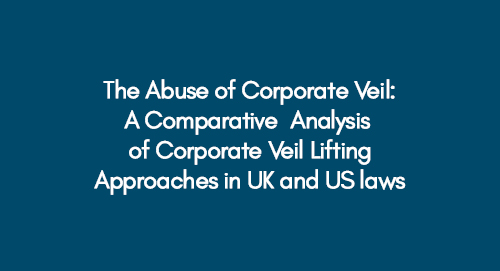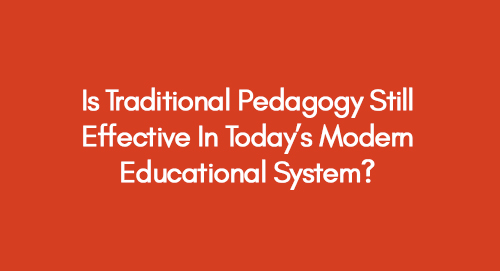
The Abuse of Corporate Veil: A Comparative Analysis of Corporate Veil Lifting Approaches in UK and US laws
January 28, 2022
HND Business and Marketing Strategy
March 9, 2022Analyzing British Petroleum's ethics through deontology and utilitarianism unveils diverse perspectives on moral duties and societal consequences, shedding light on nuanced ethical considerations in BP's practices. British Petroleum (BP) emerges as a compelling case study within corporate ethics. This blog critically examines BP's business ethics, employing the divergent perspectives of deontology and utilitarianism. By scrutinizing the company's actions through these contrasting lenses, we aim to unravel the intricate layers of its ethical landscape, offering insights into the complexities that define BP's corporate conduct.
Find Out the Latest Oil and Gas Dissertation Topics
In the ethical arena, deontology directs our focus towards principles and moral duties, prompting a meticulous analysis of BP's adherence to these foundational norms. Simultaneously, utilitarianism widens the lens, urging us to evaluate the overall impact of BP's decisions on society. Through this dual perspective, we delve into the ethical intricacies surrounding BP, exploring the intersection of principled duties and societal consequences in the context of its business practices.
Introduction
This report aims to thoroughly assess the business ethics employed by British Petroleum (BP), a prominent player in the oil industry. The evaluation will be grounded in two divergent theoretical frameworks of ethical business practices and corporate social responsibility. BP, a UK-based oil and gas company, serves as the focal point for this analysis, being the parent company of the BP group, with its headquarters in London. With a history spanning over a century, BP's origins trace back to its establishment in 1908.
Throughout its extensive journey of achievement, British Petroleum (BP) has allocated millions of dollars towards business operations and community initiatives (BP Global, 2016). The company primarily garners its sales revenue from two core business segments: the upstream segment, encompassing exploration and production, and the downstream segment, involving refining and marketing. Presently, BP offers a diverse range of petroleum products, including fuel, lubricants, biodiesel, and petrochemicals, catering to households, industries, and automobiles, among other sectors. Notable brands under its umbrella include Castrol and ARAL, as highlighted in the BP Annual Report 2013.
As of 2012, BP was the fifth-largest company globally based on revenue. Additionally, it holds a position among the six major oil and gas production entities worldwide. With ownership stakes in 15 refineries, wholly or partially, BP boasts a workforce of 85,900. Furthermore, the company possesses oil reserves of 17,000 million barrels (BP Global, 2016).
The company is engaged in oil exploration and drilling operations and confronts numerous environmental and social responsibilities. British Petroleum (BP) has faced criticism for its perceived safety protocol and managerial effectiveness shortcomings, leading to several accidents and hazardous incidents. Notable among these are the chemical leak in Texas City and the oil spill in the Gulf of Mexico (GOM) in 2010, as documented in the BP Annual Report of 2013.
The Gulf of Mexico (GOM) oil spill inflicted significant financial losses and severely tarnished the company's reputation (The Guardian, 2010). Over time, BP has faced a barrage of lawsuits, financial claims, and penalties stemming from oil spills, accidents, and health and safety violations, as reported by Fisk and Calkins in 2013. Consequently, BP is under immense pressure to enhance its health and safety protocols and demonstrate ethical responsibility toward the environment, workforce, and society. However, the company remains obligated to generate increased profits to satisfy the expectations of its shareholders.
Explore Oil Field Safety Dissertation Topics
This report critically evaluates the business ethics of BP based on two foundational perspectives: (1) stockholder theory as presented by O’Leary in 2004 and (2) stakeholder theory articulated by Friedman and Miles in 2002. These two contrasting theories imply varying ethical business practices for BP, with different key individuals and groups (stakeholders) being central to each theory. BP's primary stakeholders within the stockholder theory framework are its owners and shareholders. In this context, ethical business practices necessitate BP to fulfil social responsibility by maximizing ownership and profitability, as outlined by Miles in 2012.
Conversely, within the stakeholder theory framework, the primary stakeholder for BP encompasses a broader spectrum, including the community, employees, suppliers, and customers. In adherence to this perspective, ethical business practices mandate BP to demonstrate social responsibility towards these diverse groups by undertaking initiatives for social welfare. As elucidated by Schaefer in 2008, the ethical obligations extend towards all the mentioned stakeholders. This broader concept of ethical business under stakeholder theory encompasses everyone globally as company stakeholders.
The following section of this report critically analyses the literature surrounding the divergent concepts of ethical business within the frameworks of stockholder theory and stakeholder theory. Each concept is elucidated under separate headings, providing definitions and a comprehensive review of the relevant literature. Following this, both perspectives are applied to the specific issue concerning BP, aiming to ascertain what qualifies as ethical business practices under these contrasting theories. The report concludes by synthesizing the findings and drawing conclusions regarding the business ethics of BP within the context of these two theories.
Theoretical/Conceptual Approaches and Analysis
Past literature has subjected two divergent theoretical approaches to critical analysis: Stockholder theory and Stakeholder theory. These frameworks present contrasting perspectives on the social responsibility of a business organization.
-
Stockholder Theory
Stockholder theory, also recognized as shareholder theory, presents an outlook on the corporate social responsibility of a business organization. This theory, introduced by Milton Friedman and often termed the Friedman doctrine (Friedman, 2009), posits that a business organization holds social responsibility exclusively toward one group—its stockholders. From this perspective, the organization is perceived by stockholders as an economic engine, with the primary objective being profit maximization. This, in turn, enables the distribution of profits to stockholders in the form of dividends (Friedman, 2009).
According to Friedman, the determination of social initiatives undertaken by a company should rest with the organisation's stockholders rather than being advocated by the CEO, who is appointed to conduct business on behalf of the stockholders (Friedman, 2009). In alignment with this perspective on social responsibility, an organization is posited to have no social obligation to society, the general public, or any entity beyond its shareholders. As outlined, a business organization's primary focus is to maximize profits for its stockholders and the organization itself. As expressed by Friedman (2009, p. 133), "There is one and only one social responsibility of business - to use its resources and engage in activities designed to increase its profits so long as it stays within the rules of the game, which is to say, engages in open and free competition without deception or fraud."
Nevertheless, the stockholder theory faces criticism from left-wing socialists, including Naomi Klein (Miles, 2012). Critics, such as O’Leary in 2004, find irony in Friedman's definition, deeming it paradoxical to consider profit maximization as the sole social responsibility of a business organization. Within the stockholder theory framework, sceptics argue that emphasizing social responsibility solely towards stockholders contradicts the broader societal welfare obligations that organizations should uphold (Weiss, 2009).
Furthermore, critics contend that the stockholder theory lacks clarity and consistency in aligning with the broader concept of corporate social responsibility, particularly concerning stakeholders beyond stockholders (Schaefer, 2008). This perspective of the stockholder theory faces reproach for favouring corporate elites, contributing to their wealth accumulation while leaving the general public and society devoid of any associated benefits (Miles, 2012).
The shareholder theory asserts that businesses serve as a means through which capital is entrusted to managers by the owners (shareholders) of the company, with the expectation of earning a profit on their investment. Within this framework, managers must safeguard and enhance the owners' interests while acting as agents. In agency relationships, managers bear a fiduciary responsibility to shareholders, ensuring that business resources are not allocated for any purpose unauthorized by shareholders or not in their best interests, irrespective of potential social benefits. According to the shareholder theory, managers are legally obliged to adhere to stockholders' instructions (Lee, 2008).
Importance of Project Manager Leadership Styles in Association with Project Success Rates
Nevertheless, it is crucial to note that the shareholder theory does not grant managers unrestricted freedom to pursue profit without checks and balances, even in its less defined form. The concluding segment of Friedman's definition (2009, p. 133) of the shareholder theory explicitly states, "...engages in open and free competition without deception or fraud." This underscores that managers are not absolved from adhering to moral and ethical standards in pursuing profit maximization and acting in the shareholders' best interests. They must ensure their actions do not involve illegal, deceptive, or fraudulent activities while maximizing profits.
The shareholder theory posits that ethical constraints, embodied in societal norms of fair dealings and legal regulations, are imposed on organizations. These constraints serve as safeguards, preventing the engagement of businesses in illegal, deceptive, or fraudulent activities. The broader ethical boundaries, encompassing general principles of fair dealings and legal frameworks, become imperative for every business, even as they pursue the primary goal of profit maximization. It is argued that critics of the stakeholder theory often overlook these ethical and legal constraints. Therefore, the assertion by critics that managers, under the shareholder theory, operate without ethical constraints during profit maximization appears not entirely accurate (Schaefer, 2008).
According to the stockholder theory, the societal pressure on BP to enhance health and safety procedures and undertake social welfare initiatives, such as public welfare activities, would be perceived as utilising business resources for a purpose not aligned with the best interests of the shareholders. This viewpoint contends that employing business resources for the social good of society and the general public without the consent of stockholders is analogous to spending taxpayers' money for societal betterment without taxpayer consent—a perspective considered erroneous. Hence, under the stockholder theory, it is deemed contrary to the social responsibility of the business to maximize profit and act in the owners' best interest unless such societal benefits are pursued with the explicit consent of the stockholders (Friedman & Miles, 2002).
-
Stakeholder Theory Review
Stakeholder theory presents a divergent perspective from stockholder theory concerning a business organisation's ethical and social responsibility. According to this framework, a business organization bears social responsibility towards all groups, referred to as stakeholders, that may be impacted by the decisions and activities of the business organization (Phillips & Freeman, 2010). In contrast to the stockholder theory, which primarily focuses on profit maximization, the stakeholder theory focuses on society and the broader world. The stakeholder theory aims to identify those who could be affected by the organization and subsequently strives to discern the legitimate claims and rights of these stakeholders concerning the actions of the business organization. This approach gives rise to specific social responsibilities within the business organization (Mareș, 2008).
In essence, the stakeholder theory asserts that every individual or group influenced by an organization's decisions has the right to participate in guiding its actions. The organization is duty-bound to exercise social responsibility by refraining from engaging in activities that would undermine the social welfare of all stakeholders. Consequently, the primary responsibility of managers extends beyond shareholders and profit maximization. Instead, managers are tasked with balancing the competing rights of diverse stakeholders (Frederic, 2002).
The stakeholders of a company, contingent upon the nature of the company and the groups affected by its activities, encompass a diverse set of individuals. Generally, stakeholder theory identifies five key groups within an organization's stakeholders: customers, the community, employees, suppliers, and the company's shareholders. However, the inclusion of individuals as stakeholders of a company can significantly vary based on the nature and business activities of the organization (Fisher, Lovell, & Valero-Silva, 2012). Sustainable supply chain risk management plays a crucial role in addressing the concerns and expectations of these stakeholders, particularly in the context of environmental and social responsibility.
For example, in the context of British Petroleum (BP), the stakeholders encompass, but are not restricted to, the following:
- Shareholders of BP.
- Management and employees of BP.
- Customers and potential customers of BP.
- Suppliers and potential suppliers of BP.
- The local and international community worldwide.
- Local populations residing near oil extraction and drilling sites.
- Regulatory bodies overseeing the oil and gas industry.
- Local and international governments.
- Environmentalists and social welfare activists.
- Health and safety regulatory bodies.
- Banks, creditors, and lenders.
As stated in the BP Annual Report of 2013, these groups are considered to be those to whom BP holds social responsibility according to stakeholder theory. However, it's important to note that these groups don't constitute an exhaustive list, as the statement posits that anyone affected by the business activities is a stakeholder. Consequently, defining a company's complete list of stakeholders becomes challenging, and it is impractical for a business organization to be socially responsible towards all stakeholders and provide them with a say in directing business activities.
Nevertheless, according to stakeholder theory, organizations must be socially responsible towards all stakeholders, even if it contradicts the profit maximization stance of stockholder theory (Lee, 2008). In stakeholder theory, managers bear fiduciary responsibility to shareholders and all stakeholders. This implies an agency relationship with all stakeholders, necessitating the allocation of business resources for purposes favouring stakeholders while ensuring social benefits. By safeguarding the long-term interests of all groups, the organization can secure its survival and protect its overall interests. Stakeholder theory underscores the legal obligation of managers to follow stakeholders' instructions. However, given the impracticality of adhering to every individual's instructions affected by the organization's actions, it becomes necessary to define specific stakeholders significantly impacted by the organization's actions (Friedman & Miles, 2002).
The organisation safeguards its rights through social responsibility once specific stakeholders are identified. In this ethical business framework, profit is not solely measured in monetary terms but is also evaluated in terms of human welfare. Stakeholder theory aims to maximize profit regarding human welfare, unlike the monetary maximization emphasized in shareholder theory. This theory strives to balance the interests of all stakeholders while focusing on profit maximization without compromising societal welfare. Consequently, under this perspective, an organization's social responsibility extends beyond shareholders, necessitating safeguarding all stakeholder groups' interests (Weiss, 2009).
Discussion and Conclusion
After a comprehensive analysis of stockholder theory and stakeholder theory, it is evident that these two frameworks offer conflicting perspectives on the social responsibility of a business organization. While both theories acknowledge the notion of social responsibility, the key difference lies in the scope of this responsibility.
Stockholder theory contends that a business organization has social responsibility solely towards its shareholders. In contrast, stakeholder theory asserts that a business organization is socially responsible to its shareholders and all groups potentially impacted by its activities. The typical classification of stakeholders includes customers, the community, employees, suppliers, and the company's shareholders.
Under stakeholder theory, management must uphold all stakeholders' rights, ensuring ethical business practices. In contrast, stockholder theory restricts managers' social responsibility to the company's shareholders. The argument favouring stockholder theory is grounded in the belief that, as an economic engine, the primary purpose of a business organization is profit maximization. Therefore, managers are deemed socially responsible when they act to maximize profits for the company's shareholders, guided by a fiduciary relationship.
In the context of stockholder theory, if managers allocate business resources for the social welfare of stakeholder groups beyond the company's shareholders, it may be deemed socially irresponsible behaviour. Conversely, under stakeholder theory, managers carry a fiduciary responsibility towards all stakeholder groups, necessitating a delicate balance of their varied interests.
However, the practicality of granting directing rights to all groups impacted by a company's activities, as suggested by stakeholder theory, is questionable. Consequently, after evaluating the contrasting views on social responsibility, it can be argued that British Petroleum (BP) has a social responsibility towards its shareholders and some key stakeholders, as outlined in the report. For BP, focusing solely on shareholder responsibility would be insufficient.
Furthermore, it can be asserted that engaging in charity and public welfare activities can be in a company's best interest. Such corporate social responsibility initiatives can enhance the corporate image as a robust marketing strategy to attract customers, potential customers, and other critical stakeholders. This is particularly relevant in the context of Management and Marketing Technology, where businesses leverage technological tools and platforms to effectively communicate their CSR efforts to the target audience. Through innovative management practices and digital marketing strategies, companies can amplify the impact of their CSR initiatives, fostering goodwill among consumers and differentiating themselves in competitive markets.
Simultaneously, this approach contributes to maximizing profits for shareholders. Hence, the research underscores that a company like BP in the oil industry bears social responsibility towards shareholders and stakeholders.
 Download PDF File
Download PDF File
References
- BP Annual Report. (2013). Annual Report and Form 20-F 2013 [Online]. Available at: http://www.bp.com/content/dam/bp/pdf/investors/BP_Annual_Report_and_Form_20F_2013.pdf
- BP global. (2016), About BP. [Online]. Available at: http://www.bp.com/en/global/corporate/about-bp.html
- Fisher, C., Lovell, A., and Valero-Silva, N. (2012). Business Ethics and Values, Pearson Education, 4th Edition.
- Fisk, M. C. and Calkins, L. B. (2013). BP Gulf of Mexico Spill, From Disaster to Trial: Timeline. Bloomberg. Feb 25. [Online]. Available at: http://www.bloomberg.com/news/2013-02-25/bp-gulf-of-mexico-spill-from-disaster-to-trial-timeline.html
- Frederic, R. E. (2002). A Companion to Business Ethics. Massachusetts: Blackwell.
- Friedman, A. L., and Miles, S. (2002). Developing Stakeholder Theory. Journal of Management Studies, 39(1), 1-21.
- Friedman, M. (2009). Capitalism and Freedom: Fortieth Anniversary Edition. University of Chicago Press.
- Lee, M. D. (2008). Reviewing corporate social responsibility theories: Its evolutionary path and the road ahead. International Journal of Management Reviews, 10(1), 53-73.
- Mareș, R. (2008). The Dynamics of Corporate Social Responsibilities. Martinus Nijhoff Publishers.
- Miles, S. (2012). Stakeholders: essentially contested or just confused? Journal of Business Ethics, 108(3), 285-298.
- O’Leary, D. (2004). Interpreting Friedman’s view of business. Journal of Macrodynamic Analysis, 4, 40-52.
- Phillips, R., and Freeman, R. E. (2010). Stakeholders. Edward Elgar.
- Robert, P. (2003). Stakeholder Theory and Organizational Ethics. Berrett-Koehler Publishers.
- Robert, P. (2003). Stakeholder Theory and Organizational Ethics. Berrett-Koehler Publishers.
- Schaefer, B. (2008). Shareholders and social responsibility. Journal of Business Ethics, 81, 297-312.
- Weiss, J. W. (2009). Business Ethics: A Stakeholder and Issues Management Approach With Cases (5 ed.). Mason, OH: South-Western Cengage Learning.
Get an Immediate Response
Discuss your custom requirements with our writers
Get 3+ Free Custom Examples & Topics within 24 hours;
Free Online Plagiarism Checker For Students
We will email you the report within 24 hours.
Upload your file for free plagiarism





























